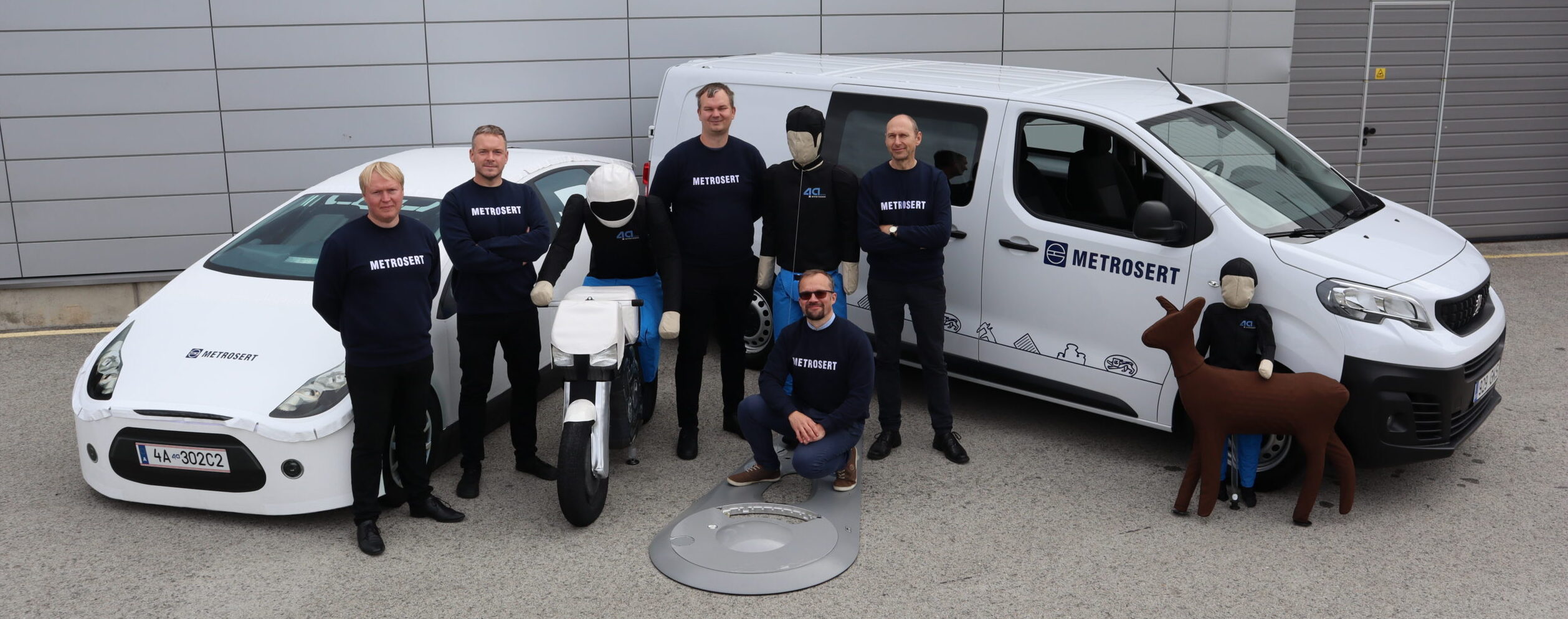
Estonia’s Applied Research Center and National Metrology Institute Metrosert will open an autonomous vehicle test laboratory on 11 November. The mobile lab, unique in Europe, enables testing to be carried out where the client’s development team is based or where the vehicle will actually be deployed. This makes testing more flexible and cost-effective compared to stationary laboratories.
“In traditional, stationary testing labs, testing autonomous vehicle technology is usually feasible only for large companies. Metrosert’s goal is to make testing accessible also to small and medium-sized developers. This way, the lab supports the export capability of local tech companies and contributes to shaping a safer traffic environment in Estonia,” said Taaniel Tigas, Head of the Autonomous Vehicle Division at Metrosert’s Center for Applied Research.
Also necessary for foreign companies
International interest in the new laboratory is already strong, particularly among vehicle and component manufacturers who see Estonia’s flexible regulation, low bureaucracy, and climate as key advantages. Estonia’s four seasons and constantly changing road conditions provide a valuable testing environment in the world of autonomous vehicles. For vehicles heading to the Northern European market, testing in a variety of weather conditions is essential — and Estonia offers a highly convenient location for that.
According to the Estonian Minister of Economic Affairs and Industry Erkki Keldo, the new autonomous vehicle testing laboratory is unique in both Estonia and Europe.
“The laboratory gives Estonian technology companies the opportunity to test self-driving vehicles in real-life conditions locally and bring new solutions to market faster. This will also increase the added value of the Estonian economy by helping companies’ development projects reach practical use more quickly.”
Keldo added that the state also supports the creation of other new testing laboratories within the Applied Research Center, dedicated to biorefining, drone and hydrogen technologies, and health data.
A New Level of Testing Quality
An initial investment of nearly 900,000 euros has been made to establish Metrosert’s autonomous vehicle laboratory. The equipment allows for the precise and repeatable simulation of traffic scenarios — including the sudden appearance of a pedestrian, cyclist, animal, or another vehicle, as well as emergency braking events.
The lab uses robot carriers from Austrian manufacturer 4activeSystems, capable of reaching speeds of up to 100 km/h under ideal conditions when necessary. Combined with specialized dummies, these carriers can simulate dozens of different road user types — from children and scooter riders to wild animals, motorcyclists, and full-sized passenger cars.
With this technology, the lab can assess a vehicle’s behavior in potentially hazardous traffic situations and, if necessary, repeat the same test under identical conditions until the autonomous vehicle reaches the required safety level. The measurements carried out by Metrosert serve as input for the Estonian Transport Administration Authority in deciding whether a vehicle is safe enough to be approved for road use.
In Estonia, the Transport Administration is the national type approval and registration authority responsible for ensuring that new vehicle types meet all applicable requirements and are ready to be placed on the road. Metrosert’s test laboratory supports this process by evaluating vehicle safety more precisely and with a larger test sample than before. Metrosert has also initiated the accreditation process for the lab, aiming to become a designated technical service recognised by the Transport Administration — with test results that are equivalent to those of other European laboratories.
Autonomous Vehicles Are the Future
Reportedly, the first fully autonomous vehicles in Europe will begin operating robot taxi services in Germany in April 2026. This is no longer a pilot or demo project – the service will be offered in selected areas of three cities, using fleets consisting of several dozen vehicles.
“The deployment of autonomous vehicles as ride-sharing, robot taxi or delivery services is set to expand across Europe in the coming years. A European Union–wide regulatory framework has been established, and implementation practice is being added. With the autonomous vehicle laboratory at Metrosert, we are creating national competence in Estonia to help ensure road safety as self-driving vehicles are integrated into traffic,” explained Taaniel Tigas, Head of the Autonomous Vehicle Division at Metrosert’s Center for Applied Research.
Watch the video! Taaniel Tigas, Head of the Autonomous Vehicles Division, introduces the laboratory’s capabilities and explains how Metrosert contributes to shaping a safer future of mobility.